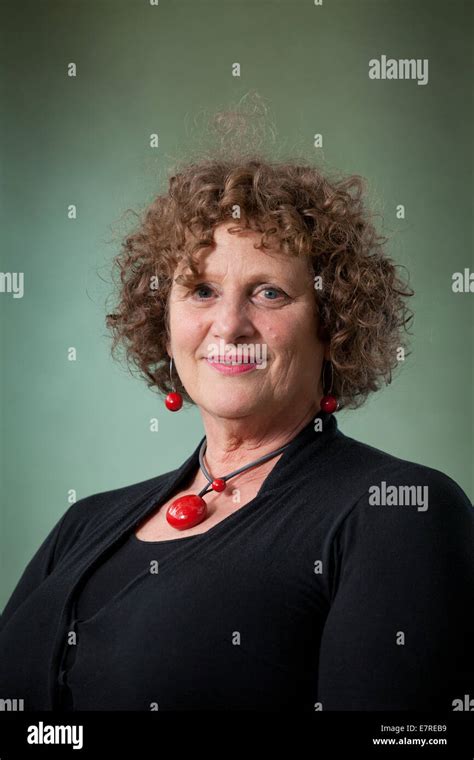A Quote by Marcus du Sautoy
My big thesis is that although the world looks messy and chaotic, if you translate it into the world of numbers and shapes, patterns emerge and you start to understand why things are the way they are.
Related Quotes
But actually a code is a language for translating one thing into another. And mathematics is the language of science. My big thesis is that although the world looks messy and chaotic, if you translate it into the world of numbers and shapes, patterns emerge and you start to understand why things are the way they are.
One of the things I'm trying to do over and over again in my books is create new mythologies, create new ways to understand the complexity of the world. I think what mythology does is impress upon chaotic experience the patterns, hierarchies and shapes which allow us to interpret the chaos and make fresh sense of it.
I sense the world might be more dreamlike, metaphorical, and poetic than we currently believe--but just as irrational as sympathetic magic when looked at in a typically scientific way. I wouldn't be surprised if poetry--poetry in the broadest sense, in the sense of a world filled with metaphor, rhyme, and recurring patterns, shapes, and designs--is how the world works. The world isn't logical, it's a song.
But sometimes you can't figure everything out because you can't ever really understand other people. You can't understand why they do what they do. You just have to accept a little mystery, Ben. People are mysterious, the world is mysterious. You can't know everything. You're not supposed to. This isn't a history book. It's just the world. It's a messy place.
There are only patterns, patterns on top of patterns, patterns that affect other patterns. Patterns hidden by patterns. Patterns within patterns. If you watch close, history does nothing but repeat itself. What we call chaos is just patterns we haven't recognized. What we call random is just patterns we can't decipher. what we can't understand we call nonsense. What we can't read we call gibberish. There is no free will. There are no variables.
We read to find out what the world is like, to experience lots of lives, not just the one we live. If it is true that our lives are chaotic and we crave a shape, stories are the shapes that we put on experience, containing all the wisdom in the world. We can even choose what kind of wisdom suits us.
I don’t understand why we must do things in this world, why we must have friends and aspirations, hopes and dreams. Wouldn’t it be better to retreat to a faraway corner of the world, where all its noise and complications would be heard no more? Then we could renounce culture and ambitions; we would lose everything and gain nothing; for what is there to be gained from this world?
Computers and rocket ships are examples of invention, not of understanding. ... All that is needed to build machines is the knowledge that when one thing happens, another thing happens as a result. It's an accumulation of simple patterns. A dog can learn patterns. There is no "why&rdqo"; in those examples. We don't understand why electricity travels. We don't know why light travels at a constant speed forever. All we can do is observe and record patterns.






































